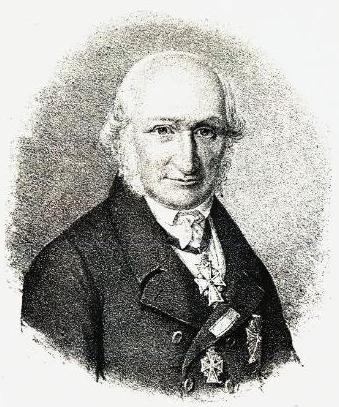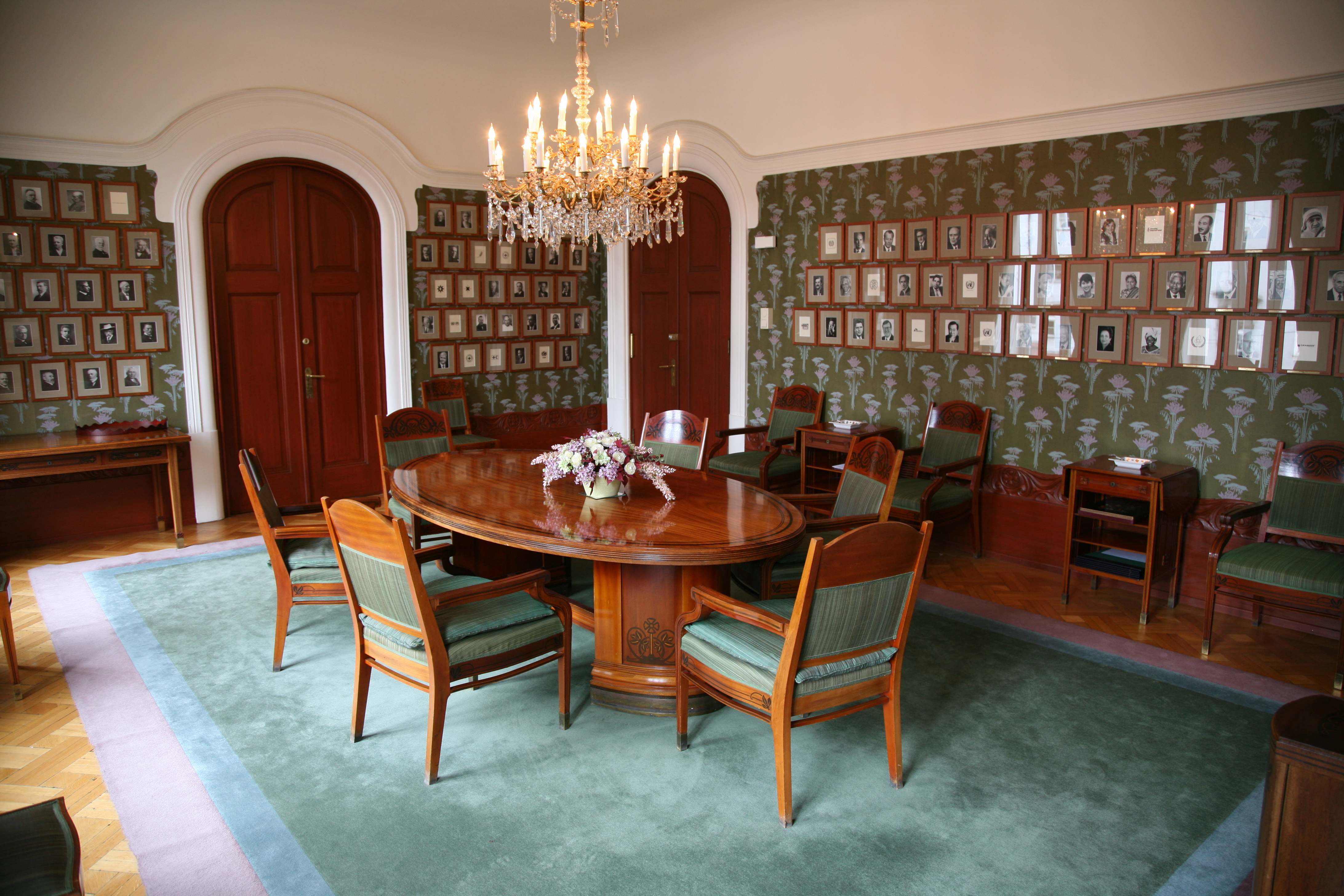|
Kristin Clemet
Kristin Clemet (born 20 April 1957, in Harstad) is a Norwegian politician for Høyre, Norway's Conservative Party. She was elected to the Norwegian Parliament from Oslo in 1989, but was not re-elected in 1993. She had previously served as a deputy representative during the term 1985–1989. From 1981 to 1983, during the first cabinet Willoch, Clemet was appointed personal secretary (today known as political advisor) in the Ministry of Industry. From 1985 to 1986, during the second cabinet Willoch, she was personal secretary in the Office of the Prime Minister. In November 1989, during the cabinet Syse, she was Minister of Government Administration and Labour. During this period her seat in parliament was taken by Kari Garmann. From 2001 to 2005, when the second cabinet Bondevik held office, Clemet was Minister of Education and Research. As Minister of Education and Research, Clemet became known for her work in carrying out "The Quality Reform" ''(Kvalitetsreformen)'' in the No ... [...More Info...] [...Related Items...] OR: [Wikipedia] [Google] [Baidu] |
Minister Of Education And Research (Norway)
The Royal Ministry of Education and Research ( no, Det kongelige kunnskapsdepartement; short name ''Kunnskapsdepartementet'') is a Norwegian government ministry responsible for education, research, kindergartens and integration. The ministry was established in 1814 as the Royal Ministry of Church and Education Affairs. The current Minister of Education is Tonje Brenna of the Labour Party and the current Minister of Research and Higher Education is Ola Borten Moe of the Centre Party. The department reports to the legislature ( Stortinget). History The ministry was established in 1814, following the dissolution of Denmark–Norway, in which the joint central government administration of the two formally separate but closely integrated kingdoms, had been based in Copenhagen. Originally named the Ministry of Church and Education Affairs, the ministry was the first of six government ministries established in 1814, and was also known as the First Ministry. The other ministries we ... [...More Info...] [...Related Items...] OR: [Wikipedia] [Google] [Baidu] |
Norwegian Office Of The Prime Minister
The Norwegian Office of the Prime Minister (, abbreviated SMK) is a cabinet department that assists the Cabinet of Norway and the Prime Minister of Norway in the leadership of the Cabinet and Government. It has since 2021 been led by Prime Minister Jonas Gahr Støre ( Labour Party). The State Secretary in charge of the office is . The office has about 55 employees. History Since the establishment of the first Norwegian government, in 1814, the Prime Minister has had secretaries to help him with tasks, though these were not collectively assigned to his office until 1945. The office was given the current title in 1950, but not formally created until 1956. In 1969 the central secretariat for the entire cabinet also became part of the Office of the Prime Minister. Employees References External links * {{Authority control Government ministries of Norway Norway, Office of the Prime Minister Norway Norway, officially the Kingdom of Norway, is a Nordic country in ... [...More Info...] [...Related Items...] OR: [Wikipedia] [Google] [Baidu] |
Tove Strand Gerhardsen
Tove Astri Strand (born 29 September 1946) is a Norwegian director and former politician for the Labour Party. She was active in politics between 1963 and 1992, including two periods as a government minister. She headed the Norwegian Agency for Development Cooperation from 1997 to 2005, and since 2005 she is the director of Ullevål University Hospital. Early and personal life Born in Kongsvinger as the daughter of local bureaucrat Norvald Strand and nurse Svanhild Lundhaug, she chaired the local chapter of the Workers' Youth League from 1963 to 1966. She then enrolled as a student at the University of Oslo, having chosen to study economics over medicine, She graduated in 1971 with the cand.oecon. degree, and cited Leif Johansen and Nobel Prize laureate Trygve Haavelmo as inspirational economists. While living in Oslo she was a member of the board of local Workers' Youth League chapter from 1968 to 1970. Tove Strand was formerly married to Rune Gerhardsen, a fellow Labour Party p ... [...More Info...] [...Related Items...] OR: [Wikipedia] [Google] [Baidu] |
List Of Members Of The Norwegian Nobel Committee
The five members of the Norwegian Nobel Committee award the Nobel Peace Prize every year. They are appointed by the Parliament of Norway and roughly represent the political makeup of that body. The committee was established in 1897, and has awarded the prize most years since 1901. Fifty-four people have sat on the committee, of which ten have been women. Thirteen have been chair and six deputy chair. The awards in 1935 (to Carl von Ossietzky), 1973 (to Henry Kissinger) and 1994 (to Yasser Arafat) caused members of the committee to withdraw due to disagreement with the committee decision. Since 2018, the members are Berit Reiss-Andersen (chair, of the Labour Party), Henrik Syse (deputy chair, of the Conservative Party), Thorbjørn Jagland (Labour Party), Anne Enger ( Centre Party) and Asle Toje ( Progress Party). Historically, the committee's members have represented seven political parties, including (in addition to the four parties currently represented) the Liberal Par ... [...More Info...] [...Related Items...] OR: [Wikipedia] [Google] [Baidu] |
Think Tank
A think tank, or policy institute, is a research institute that performs research and advocacy concerning topics such as social policy, political strategy, economics, military, technology, and culture. Most think tanks are non-governmental organizations, but some are semi-autonomous agencies within government or are associated with particular political parties, businesses or the military. Think-tank funding often includes a combination of donations from very wealthy people and those not so wealthy, with many also accepting government grants. Think tanks publish articles and studies, and even draft legislation on particular matters of policy or society. This information is then used by governments, businesses, media organizations, social movements or other interest groups. Think tanks range from those associated with highly academic or scholarly activities to those that are overtly ideological and pushing for particular policies, with a wide range among them in terms of th ... [...More Info...] [...Related Items...] OR: [Wikipedia] [Google] [Baidu] |
Civita (think Tank)
__NOTOC__ Civita is a Norwegian liberal think tank which gains support from, among others, the Confederation of Norwegian Enterprise. In the beginning, it was led by Terje Svabø, but prominent Conservative Party politician Kristin Clemet took over on November 16, 2006, after having central roles in many projects. The organization works to promote the value of individualism and a free market economy. It functions as a network of people with different political affiliation from different sectors of society (academia, business, media, organizations and politics). The organization spreads its message through seminars, lectures, research Research is " creative and systematic work undertaken to increase the stock of knowledge". It involves the collection, organization and analysis of evidence to increase understanding of a topic, characterized by a particular attentiveness ..., and book publications. Leadership * Kristin Clemet – Managing Director [...More Info...] [...Related Items...] OR: [Wikipedia] [Google] [Baidu] |
Confederation Of Norwegian Enterprise
The Confederation of Norwegian Enterprise ( no, Næringslivets Hovedorganisasjon, NHO) is an employers' organisation in Norway with more than 30,000 members. It was founded in 1989 as a merger of the Federation of Norwegian Industries, the Norwegian Employers' Confederation and the Federation of Norwegian Craftsmen. The president is Svein Tore Holsether and the director general A director general or director-general (plural: ''directors general'', ''directors-general'', ''director generals'' or ''director-generals'' ) or general director is a senior executive (government), executive officer, often the chief executive offi ... is Ole Erik Almlid. The executive directors are Anniken Hauglie, Nina Melsom, Øystein Dørum, Peter Markovski, Gjermund Løyning, Christian Chramer, Kåre Anda Aronsen, Vibeke Østensjø and Maria Dahlstrøm. References External links * Conservatism in Norway * {{Norway-org-stub ... [...More Info...] [...Related Items...] OR: [Wikipedia] [Google] [Baidu] |
Tidens Tegn
''Tidens Tegn'' (Norwegian: ''Sign of the Times'') is a former Norwegian newspaper, issued in Oslo from 1910 to 1941. Editors The founder and first editor-in-chief of ''Tidens Tegn'' was Ola Thommessen, who edited the newspaper until 1917. Thommessen had recently left the editor chair of ''Verdens Gang'' in protest, bringing much of ''Verdens Gang''´s staff with him. From 1917 to 1938 the editor-in-chief was Rolf Thommessen, son of the founder. Another son Bjørn Thommessen was central as well. Jonas Schanche Jonasen edited the newspaper from 1938 to 1940, when he fled from the country to Great Britain. Ranik Halle was editor from 1940 until the newspaper was discontinued in 1941. 1910s and 1920s Politically the newspaper supported the Liberal Left Party ( no, Frisinnede Venstre, later called the '). The newspaper became one of the most important and largest in Norway during the 1910s and 1920s. Among the contributors were Einar Skavlan, Olaf Bull, Sven Elvestad, Hans E. Ki ... [...More Info...] [...Related Items...] OR: [Wikipedia] [Google] [Baidu] |
Bachelor Of Commerce
A Bachelor of Commerce (abbreviated BComm or BCom; also, ''baccalaureates commercii'') is an undergraduate degree in business, usually awarded in Canada, Australia, India, Sri Lanka, Pakistan, Ireland, New Zealand, Ghana, South Africa, Myanmar, Egypt, and additional Commonwealth countries. The degree was previously offered in the United Kingdom. Structure Bachelor of Commerce The Bachelor of Commerce degree is designed to provide students with a wide range of managerial skills, while building competence in a particular area of business (see aside). For a comparison with other business degrees, see . Most universities, therefore, plan the degree such that in addition to their major, students are exposed to general business principles, taking courses in accounting, finance, economics, business management, human resources and marketing. Programs often require foundational courses in business statistics and mathematics, and information systems. Depending on the institut ... [...More Info...] [...Related Items...] OR: [Wikipedia] [Google] [Baidu] |
University
A university () is an institution of higher (or tertiary) education and research which awards academic degrees in several academic disciplines. Universities typically offer both undergraduate and postgraduate programs. In the United States, the designation is reserved for colleges that have a graduate school. The word ''university'' is derived from the Latin ''universitas magistrorum et scholarium'', which roughly means "community of teachers and scholars". The first universities were created in Europe by Catholic Church monks. The University of Bologna (''Università di Bologna''), founded in 1088, is the first university in the sense of: *Being a high degree-awarding institute. *Having independence from the ecclesiastic schools, although conducted by both clergy and non-clergy. *Using the word ''universitas'' (which was coined at its foundation). *Issuing secular and non-secular degrees: grammar, rhetoric, logic, theology, canon law, notarial law.Hunt Janin: "The university ... [...More Info...] [...Related Items...] OR: [Wikipedia] [Google] [Baidu] |



